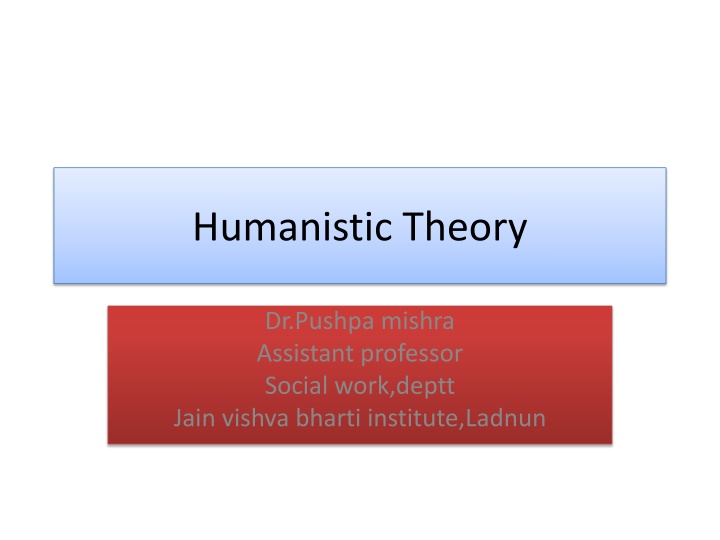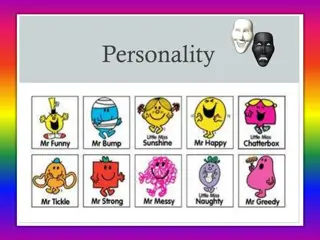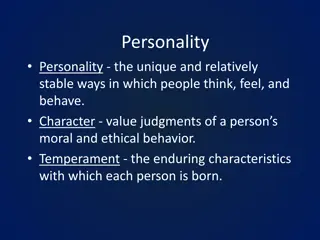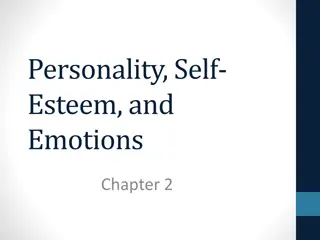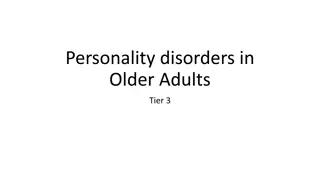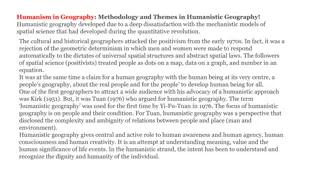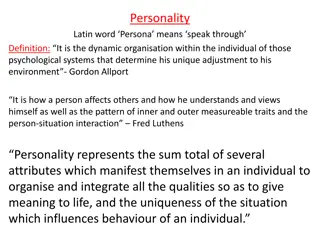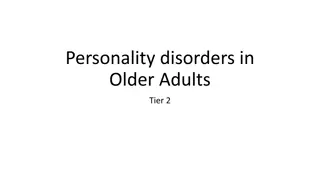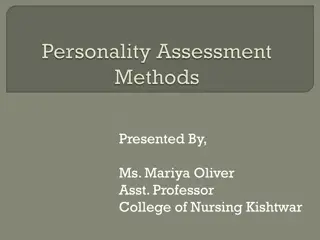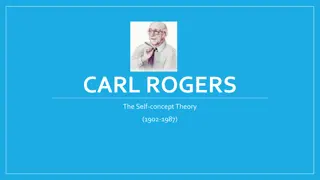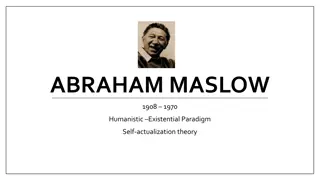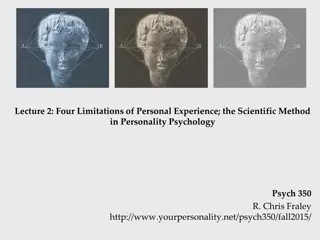Humanistic Theory of Personality and its Key Concepts
Humanistic theory emphasizes the active role individuals play in their behavior, with proponents like Abraham Maslow and Carl Rogers. It focuses on humanistic psychology, existentialism, and humanism, emphasizing personal meaning and values. The theory argues for the innate goodness of individuals and the pursuit of self-actualization. The hierarchy of needs includes physiological, safety, belongingness, esteem, and self-actualization needs.
Download Presentation

Please find below an Image/Link to download the presentation.
The content on the website is provided AS IS for your information and personal use only. It may not be sold, licensed, or shared on other websites without obtaining consent from the author.If you encounter any issues during the download, it is possible that the publisher has removed the file from their server.
You are allowed to download the files provided on this website for personal or commercial use, subject to the condition that they are used lawfully. All files are the property of their respective owners.
The content on the website is provided AS IS for your information and personal use only. It may not be sold, licensed, or shared on other websites without obtaining consent from the author.
E N D
Presentation Transcript
Humanistic Theory Dr.Pushpa mishra Assistant professor Social work,deptt Jain vishva bharti institute,Ladnun
The humanistic theory of personality emphasized people have they play an active role in determining how the behave. They tend to have an optimist perspective on human nature. Abraham maslow and call rogers were proponents of humanistic view. Humanistic theory is based on philosophies of existentialism and humanism.
History of humanistic theory Carl rogers develop a client center therapy In 1962, with the sponsorship of brandies university, that moment was formally launched as the associated for humanistic psychology. Maslow developed a hierarchical theory of motivation Humanistic psychology is base on philosophies of existentialism and humanism
Humanism This is a psychological approach that emphasize the study of the person, and the uniqueness of each individual. Existentialism This is emphasized the quest for personal meaning and determining personal values.
Concept of theory Humanistic theory of personality argue that the basic goodness of human being and the need to achieve one s full potential. Rejected the assumptions of behaviorism and psychoanalytic approaches
Hierarchy of need 1 Physiological need 2 Safety need 3 Belonging need 4 Esteem need 5 Self actualization
Physiological these are the basic needs for survival.( food, water, sex, sleep,) Safety or security need- employment, family, health, resources, structure etc Love or belongingness family, friends, relationship etc Self esteem- respect, status, recognition, glory, dignity, reputation, attention, strength etc Self actualization- intrinsic growth, inner drive, improve ourselves, realism, openness, freshness, spirituality, emotionally satisfying, social interests.
